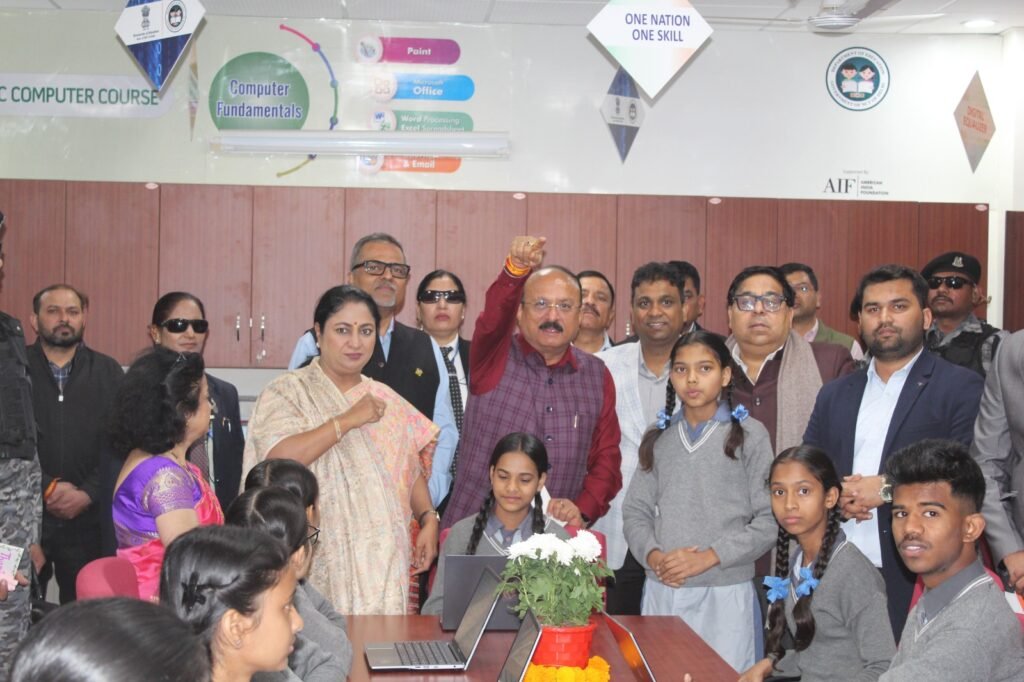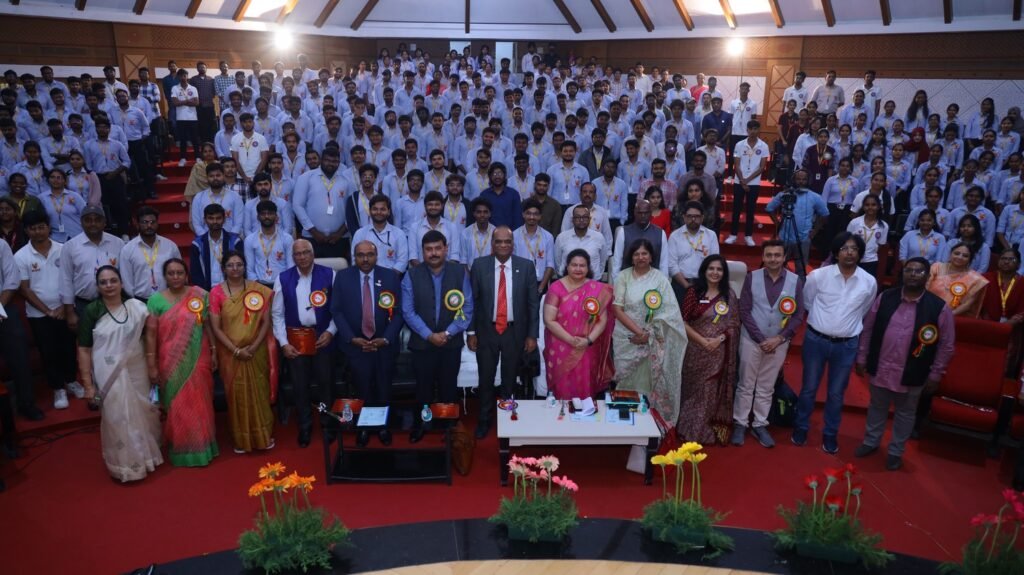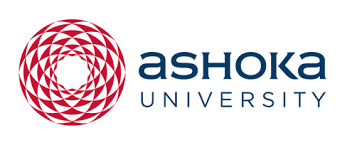AACSB International (AACSB), the world’s largest business education alliance, has awarded Ahmedabad University’s Amrut Mody School of Management (AMSOM) with the Innovations That Inspire award for 2023. The eighth annual member spotlight programme features business schools that drive new value for stakeholders and Amrut Mody School of Management received this unique distinction for offering the innovative interdisciplinary Foundation Studios that define the Foundation Programme, the common core to Undergraduate education at Ahmedabad University. The Award will be presented in person at AACSB’s International Conference and Annual Meeting on April 24, 2023, at Chicago.
Parag Patel, Senior Associate Dean, Amrut Mody School of Management, said, “It’s an honour to be awarded for our innovative Foundation Studios. The Foundation Programme, which builds on the Studios, was envisioned as the heart of our undergraduate education and is uniquely tailored to nurture future thinkers and leaders of the 21st century. It symbolises AMSOM’s focus on sustainable business and responsible citizenship. It gives us great pleasure to receive this global recognition, especially from the prestigious AACSB with a demonstrated history of identifying and acknowledging innovation in business education.”
AACSB’s annual programme recognises institutions worldwide that serve as champions of change in the business education landscape. In 2023, the highlights feature efforts to innovate the business school in ways that enhance value for all stakeholders, including students, businesses, and society. These schools are defining new realities for the future of learning, leading, and connecting, paving the way to a re-energised value proposition for business education.
Each year AACSB recognises efforts by business schools that exemplify forward-looking approaches to education, research, community engagement, entrepreneurship, leadership, and diversity and inclusion. AMSOM stands out with its emphasis on interdisciplinary education towards finding ways to solve complex problems in a changing world. “New demands from stakeholders require reimagined business school initiatives, and Amrut Mody School of Management demonstrates a fresh way forward for business education,” said Caryn Beck-Dudley, AACSB President and CEO. “By leveraging innovation for knowledge Co-creation, new methods of learning, and expanded educational access, business schools are meeting market expectations and increasing value for businesses, learners, and society.”
About the Foundation Programme and Studios at Amrut Mody School of Management, Ahmedabad University
All students entering the Undergraduate programme at Ahmedabad University undergo our core Foundation Programme in the first year. This Programme builds the foundations of interdisciplinary learning and engages with issues of society through project-based learning and research thinking.
The Innovative Interdisciplinary Foundation Studios build around six domains that define contemporary academic and life skills in the 21st century, areas of innovation that are transforming the world, and perspectives that help become a responsible member of any society. These domains include skills like Data Science and Communication, understanding of the areas of innovation like Materials and Biology and Life, and perspective building through the domains like Behaviour and Constitution and Civilisation.
The delivery of the domains of learning of the Foundation Programme is done thematically to develop a holistic approach to thinking and enquiry amongst our students. These thematic Studios are Water, Environment and Climate Change, Democracy and Justice, and Neighbourhoods. These Studios actively contribute to 15 out of the 17 United Nations Sustainable Development Goals. Inspired by the water studio of the Foundation Programme, the Living Waters Museum, a virtual museum on water, is currently collaborating with educators in Pune to develop and test ‘water classrooms’ for middle school children. The effort is part of a global initiative called Transforming Education for Sustainable Futures through the Indian Institute of Human Settlements, Bangalore, with support from the Global Challenges Fund, UK.
About Ahmedabad University is a leading private, non-profit research university offering students a liberal education focused on interdisciplinary learning, practice orientation, and research thinking.
- Recognised by the Government of Gujarat as a Centre of Excellence.
- Accredited with ‘A‘ grade by the National Assessment and Accreditation Council (NAAC).
- Received a 5-star rating, the highest awarded in the Gujarat State Institutional Rating Framework (GSIRF) for 2021-22 by the Knowledge Consortium of Gujarat (KCG), Department of Education, Government of Gujarat.
- Recognised by the UGC under section 12(B) of the UGC Act, becoming one of the very few private research universities to have been awarded this recognition for select research universities.
The University, established in 2009, is rooted in the vision of one of India’s finest educational foundations, the Ahmedabad Education Society, which was founded in 1935 by nationalist leaders. Programmes at the University range from bachelors to doctoral levels in humanities and social sciences, natural sciences, engineering, and management through its 10 Schools and Centres:
Amrut Mody School of Management | School of Arts and Sciences | School of Engineering and Applied Science | School of Public Health | Centre for Heritage Management | International Centre for Space and Cosmology | VentureStudio | Centre for Learning Futures | Global Centre for Environment and Energy | Centre for Inter-Asian Research | Ahmedabad Design Lab
An urban university, Ahmedabad promotes independent-mindedness and diversity across all dimensions of its activity and helps students mature into critical thinkers who are analytically equipped, practically oriented, and contextually aware global citizens. The University provides a contemporary educational framework that brings liberal arts, sciences, and the professions to engage together in creating new knowledge for addressing complex challenges of the society and in offering majors that merge the boundaries of disciplines to prepare students for the new economy.



